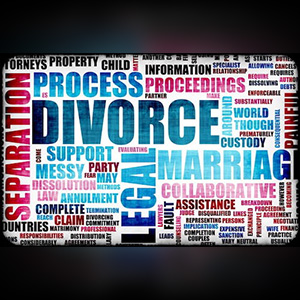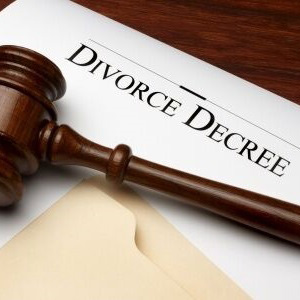
Not every marriage is a valid marriage. A marriage can be deemed to be invalid if it somehow violates New Jersey’s matrimonial laws. When this is the case for a couple, they have the option of having their marriage annulled. An annulment is not the same as a divorce. When a couple divorces, they take legal measures to exit a valid marriage contract. When a couple has an annulment, they legally acknowledge that their marriage was never a valid contract to begin with. What Makes A Marriage Invalid In New Jersey? Bigamy. If an individual is already married, he or she can not enter another marriage until this first marriage ends through divorce or death. Incestuous marriage. If the couple are biologically related in any way, their marriage is not valid under New Jersey law. Fraud. If either partner misrepresented…Read More

When the infamous extramarital affair website Ashley Madison was hacked in July 2015, more than 300,000 New Jersey users were identified. New Jersey ranked fourth in the United States for the most money spent on ashleymadison.com, coming in behind Alabama, Colorado, and the District of Columbia. On the list of the top 100 New Jersey municipalities for Ashley Madison users developed from the hacked information, Toms River ranked #6 and Freehold ranked #21. It is important to note that this data is based on user-reported locations that were uploaded to a world map by Tecnilogica, a Madrid-based digital agency and might not be 100% accurate. However, it does show the prevalence of Ashley Madison use in New Jersey fairly accurately. According to Psychology Today, between 30 and 40 percent of Americans engage in infidelity at least once in their lives. 17% of divorces in the…Read More

Today, it is very popular for unmarried couples to live together. Some of these couples eventually opt to marry, while others break up and go their separate ways or choose to live together without marrying for years or even decades. These couples do not get to take advantage of the benefits that married couples receive, such as the automatic joint ownership of the property that is obtained during a marriage. However, many of these couples do own property together and when an unmarried couple with property decides to end their relationship, issues regarding the property’s ownership and each partner’s right to the property can arise. To address these issues before they arise, many couples opt to sign cohabitation agreements. Like a prenuptial agreement, couples can use a cohabitation agreement to determine which party will retain specific assets if the couple…Read More

When you are injured in an accident, you could receive a compensation settlement through a personal injury claim. This money is meant to cover your expenses related to your injury, such as your medical bills, lost wages, and disability aids. When a married individual receives a settlement for a personal injury claim, the money from that settlement is considered to be marital property. Like other forms of income and shared assets, the money that comes into a household through a personal injury settlement may be subject to division between the spouses during their divorce. But what about a personal injury award you receive after your divorce is finalized? Can this affect your alimony or child support obligation? The answer is yes. Changed Circumstances You may petition to the court to change the amount of alimony or child support that you…Read More

If you are in immediate danger of suffering from domestic violence, you need to get out of your home now. Worry about getting him or her to leave the house later – at this moment, your top priority should be your safety. Using A Restraining Order After you have gotten yourself away from your abusive spouse, the next step is to obtain a restraining order against him or her. You will need to petition to the court to receive a restraining order, which is granted by a judge. A restraining order can require your spouse to stop contacting you and require him or her to remain further than a specified number of feet of you at all times. If you remain in the marital home and have a restraining order in place, your spouse is effectively barred from the home.…Read More

Generally, no. Once an adolescent or young adult is emancipated, he or she remains a legal adult for life. In New Jersey, a young man or woman is not automatically emancipated at eighteen. Although it is certainly possible to be emancipated at this age, many young men and women remain under their parents’ care until they graduate from college or otherwise obtain full-time employment. Being able to financially sustain oneself is a mark of adulthood; the end of an individual’s parents’ financial responsibility to him or her. This is why it is extremely rare to have an individual’s emancipation status reversed. Although the reversal of a young man or woman’s emancipation is legal in New Jersey, there is usually no reason for the court to do this. An example of a situation where an individual’s emancipation may be reversed is…Read More

Summer is here, and that means that it is time to break out the motorcycles, jet skis, ATVs, and other recreational vehicles that make being outdoors in the summer fun. Before you get on your motorcycle for a ride, make sure you take the proper safety precautions to prevent an accident. Although you can never eliminate the possibility of being injured in a motorcycle accident, you can significantly lower your risk of an accident by taking the following steps: Always wear a helmet. Wearing a helmet can greatly reduce your chance of suffering a blow to your head, which could be dangerous or even fatal. Obey posted traffic signals. This includes speed limits. Speeding can increase your risk of being involved in an accident. Never drink and drive. Alcohol inhibits your judgement, your perception, and your reaction time. If you…Read More

When an individual is injured in an accident, he or she is often eligible to file a personal injury claim to recover monetary compensation for his or her expenses. In most cases, an adult victim has two years from the date of his or her injury to file a personal injury claim. This two-year period is known as the statute of limitations, after which he or she is no longer entitled to file a claim. But when a child is injured, the rules are a little bit different. For a minor victim, this two-year period does not begin until his or her eighteenth birthday, effectively giving a child who is injured until his or her twentieth birthday to file a personal injury claim against the negligent party. If Your Child Is Injured In An Accident You need to be your…Read More

Over the past few decades, it has become socially acceptable and popular for unmarried couples to live together. Some of these couples eventually do marry and others live together for years, even decades, without ever formally committing to a marriage contract. This poses a problem when a cohabitating couple ends their relationship. In many of these cases, the couple has purchased property together or has other shared assets, such as a bank account. Unlike married couples, whose assets are divided by the court during a divorce, unmarried couples do not have legal protections in place for their assets. How Is An Unmarried Couple’s Property Divided? Because unmarried partners do not have access to the rights afforded to married couples who are going through a divorce, their property must be divided piecemeal in court. These decisions can be unpredictable because they…Read More

A Qualified Domestic Relations Order (QDRO) is a legal order that changes a retirement plan’s ownership to allow an individual other than its original holder to receive money from it. A QDRO may change a retirement plan’s ownership to an individual’s spouse, former spouse, child, or other dependent. A QDRO defines the beneficiaries, also known as “alternate payees” of a retirement account and outlines how each beneficiary may receive payments from the account. This can be through child support, alimony payments, or property transfers. When A QDRO Is Signed QDROs should be signed before a couple’s divorce is finalized but more often than not they remain incomplete at the time of the divorce due to the necessary steps required convert a Domestic Relations Order into a Qualified Domestic Relations Order. This order is part of the couple’s property division. In…Read More
